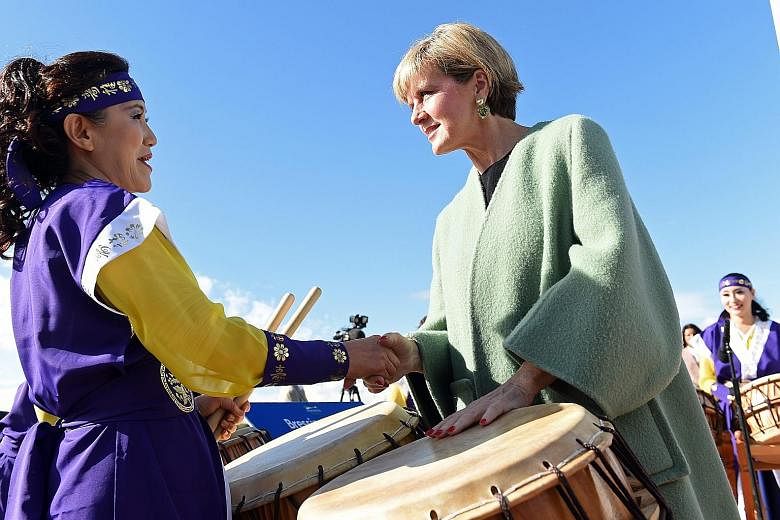In the rough and tumble of Australian election campaigns, foreign policy tends to receive minimal attention - mainly because it is one of the few areas where the major political parties often agree.
But the coming election on July 2 may produce significant differences between the ruling Liberal- National coalition and the opposition Labor Party, especially on handling future ties with China.
Typically, foreign policy is rarely a vote-changer, especially since both sides of politics have tended to show unfettered support for the main plank of Australia's defence and diplomatic outlook: its alliance with the United States.
This bipartisan support was on stark display on Tuesday when Labor's deputy leader and foreign affairs spokesman, Ms Tanya Plibersek, lashed out at the Greens party for its recent criticism of Australia's close ties to the US.
Addressing the Lowy Institute in Sydney, Ms Plibersek said Australia should act "confidently and independently" within the alliance, citing the example of Labor's opposition to the Coalition decision to join the US-led war in Iraq. "Our ability to be positive and assertive in our engagement in the region is bolstered by the confidence and security provided by our alliance with the United States. Our value as an ally (to the US) increases when we are prepared to speak up, question, analyse and act thoughtfully," she said.
During the campaign, Australia's Prime Minister Malcolm Turnbull and his rival, Mr Bill Shorten, have so far made little mention of Australia's international outlook or its future role in the region. Both leaders have instead focused on domestic issues such as employment, taxes, health and education.
But analysts say the rival parties would potentially take significantly different approaches to China's growing territorial assertiveness in the South China Sea or to any future rise in tensions between Washington and Beijing. These differences have taken on particular significance in recent months as Canberra has faced pressure from Washington to conduct a naval freedom of navigation exercise in areas claimed by China.
An expert on international security, Professor Joseph Siracusa, from RMIT University, said he believed Labor would be more inclined to try to resolve tensions with China directly, whereas the Coalition would be more likely to respond in concert with Washington. "Labor is less interested in aggressively defending navigation of the sea," he told The Straits Times. "Labor has tended to deal with China on a one-on-one basis. The Liberals lean towards dealing with China via the US."
An expert on Australia's foreign affairs, Professor Andrew O'Neil of Griffith University, said he believed Labor "tends to be more sympathetic towards China's role in the region".
"The Coalition has been seen as more pro-US and pro-Japan in the region," he told The Straits Times.
Despite a strong bipartisan current in Australian foreign policy, the divides between Labor and the Coalition typically stem from their contrasting philosophical approaches. Labor has historically favoured multilateralism, whereas the Coalition has tended to show staunch support for the US and has, at times, been sceptical of the role of the United Nations.
Ahead of the election, Labor has highlighted several changes in policy if it wins, including reversing the Coalition's recent A$224 million (S$223 million) foreign aid cuts.
Asked about Labor's approach to any future tensions with Beijing, Ms Plibersek said: "Our principles are to use our diplomatic influence to use our relationship to ensure that China grows in prosperity in a way that supports a peaceful and prosperous region."
For now, Labor's rhetoric does not sound altogether different from that of Ms Julie Bishop, Australia's Foreign Minister.

